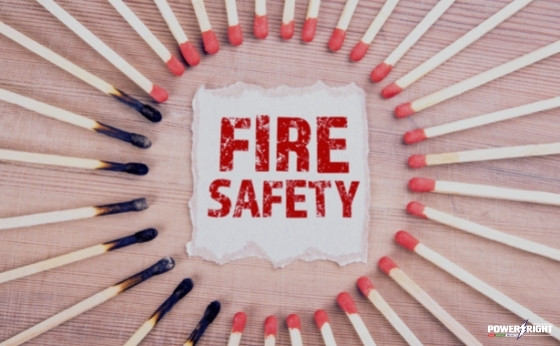
When researching potential fire protection options for your business, you might have a few questions about what kind of fire detection devices or fire alarms your commercial premises require. These fire safety FAQs answer some common questions.
The leading causes of fires in commercial property are heating equipment, cooking equipment, smoking materials, lighting and electrical equipment.
Knowing what may cause a fire in your premises is necessary to plan and install adequate means of fire detection, including appropriate smoke detectors, fire alarms, sprinkles, and extinguishes.
The fire type depends on the kind of fuel it burns. It is vital to know that different extinguishers tackle different classes of fire. An incorrect combination may turn lethal and bring even more damage to your property.
The primary legislation regulating fire detection equipment in public buildings is the Fire Services Act. This document places a responsibility on every person who has control over the premises to provide fire safety and appropriate fire-fighting equipment.
Other documents placing a duty of care on business owners are The Safety, Health and Welfare Act at Work (2007) and the Safety, Health and Welfare Act (2005).
Moreover, specific guides and codes of practice relating to fire detection differ depending on the business type.
It is necessary to schedule maintenance services for your fire alarm equipment once a year. Annual professional testing helps catch and correct problems with your fire detection system. Keep records of these visits for auditing purposes to prove compliance with the fire safety act. You should as well perform simple testing between yearly professional visits to ensure the fire safety equipment is operating correctly:
Every business owner is responsible for the safety of employees and visitors. Thus, it is vital to choose the best fire alarm system, smoke detectors and other fire prevention devices. This choice depends on some factors, including the size and layout of the property, its fire hazard, presence of flammable substances etc. We highly recommend addressing a professional to make the right choice.